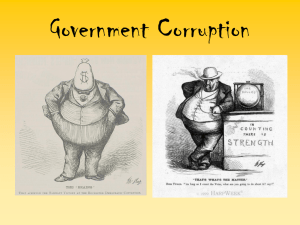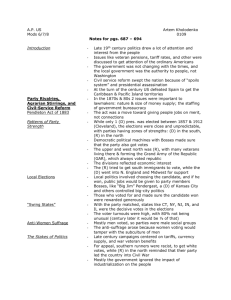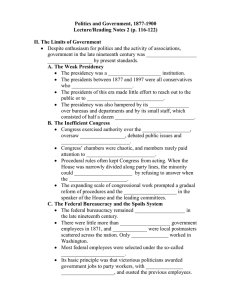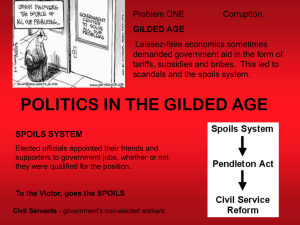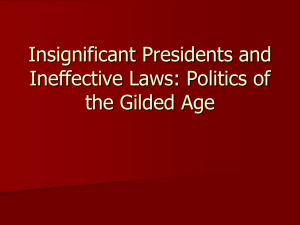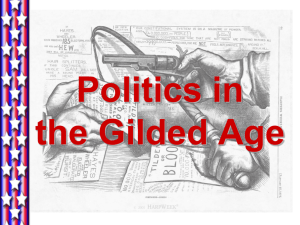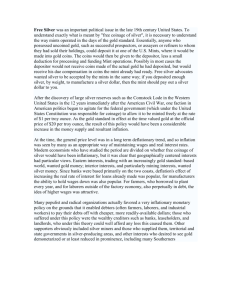16.2 Summary
advertisement
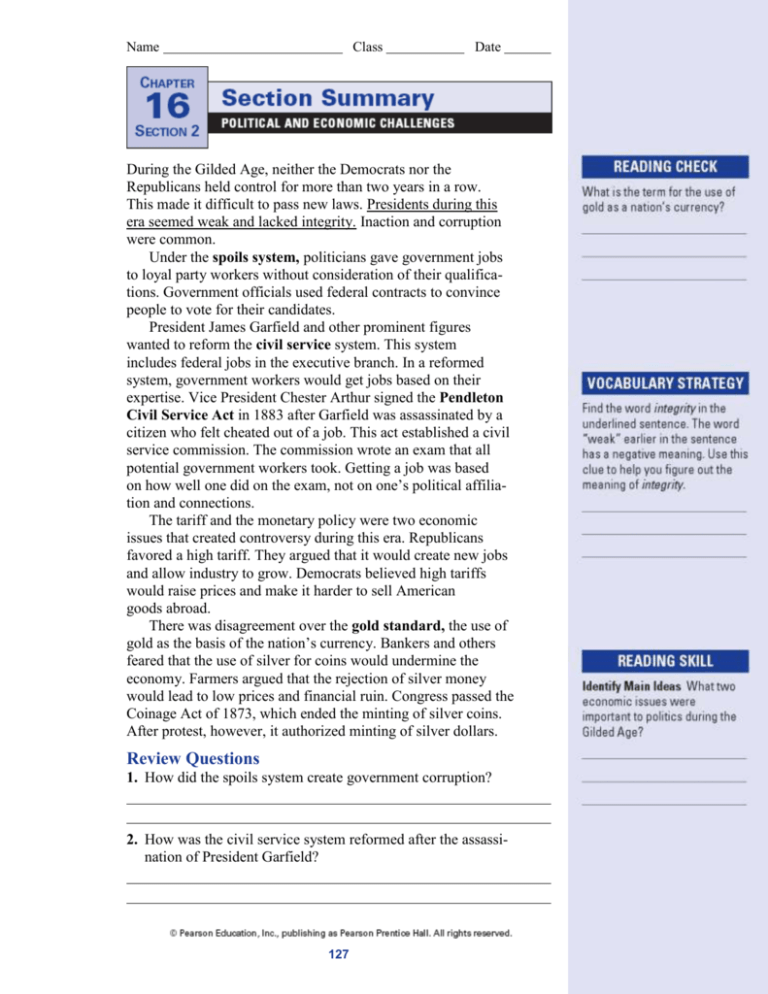
Name Class Date During the Gilded Age, neither the Democrats nor the Republicans held control for more than two years in a row. This made it difficult to pass new laws. Presidents during this era seemed weak and lacked integrity. Inaction and corruption were common. Under the spoils system, politicians gave government jobs to loyal party workers without consideration of their qualifications. Government officials used federal contracts to convince people to vote for their candidates. President James Garfield and other prominent figures wanted to reform the civil service system. This system includes federal jobs in the executive branch. In a reformed system, government workers would get jobs based on their expertise. Vice President Chester Arthur signed the Pendleton Civil Service Act in 1883 after Garfield was assassinated by a citizen who felt cheated out of a job. This act established a civil service commission. The commission wrote an exam that all potential government workers took. Getting a job was based on how well one did on the exam, not on one’s political affiliation and connections. The tariff and the monetary policy were two economic issues that created controversy during this era. Republicans favored a high tariff. They argued that it would create new jobs and allow industry to grow. Democrats believed high tariffs would raise prices and make it harder to sell American goods abroad. There was disagreement over the gold standard, the use of gold as the basis of the nation’s currency. Bankers and others feared that the use of silver for coins would undermine the economy. Farmers argued that the rejection of silver money would lead to low prices and financial ruin. Congress passed the Coinage Act of 1873, which ended the minting of silver coins. After protest, however, it authorized minting of silver dollars. Review Questions 1. How did the spoils system create government corruption? 2. How was the civil service system reformed after the assassination of President Garfield? 127
